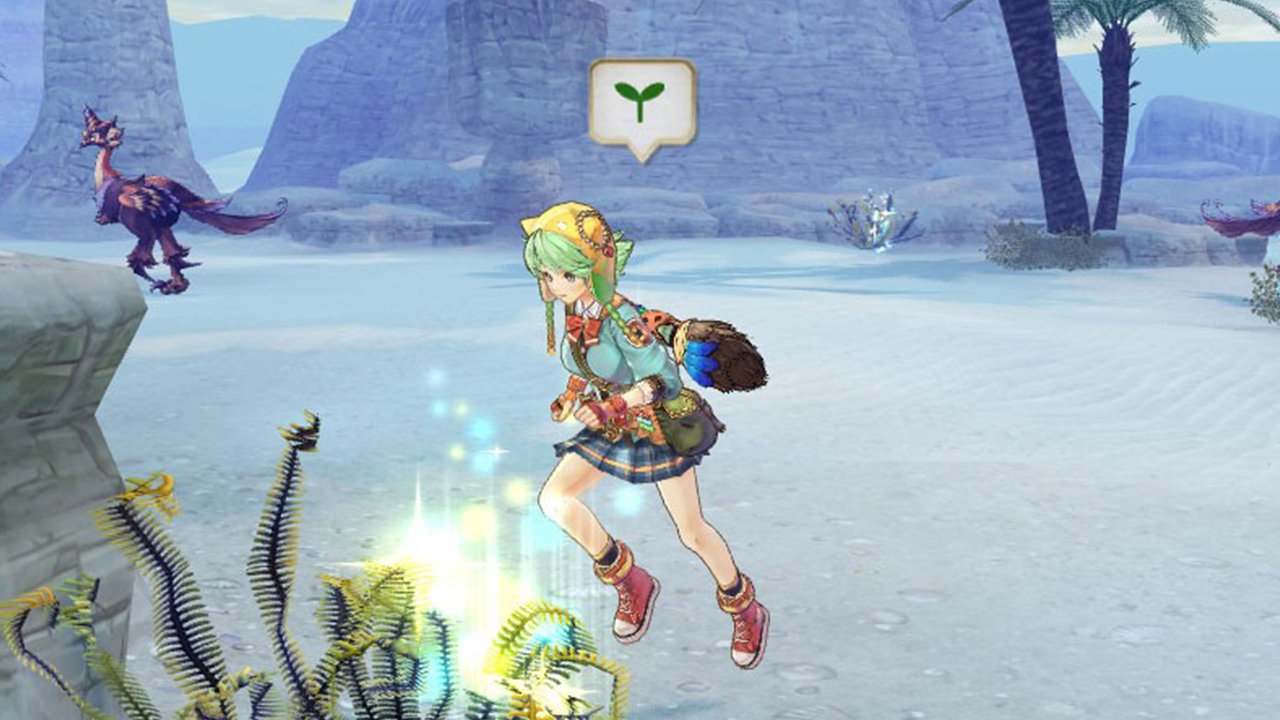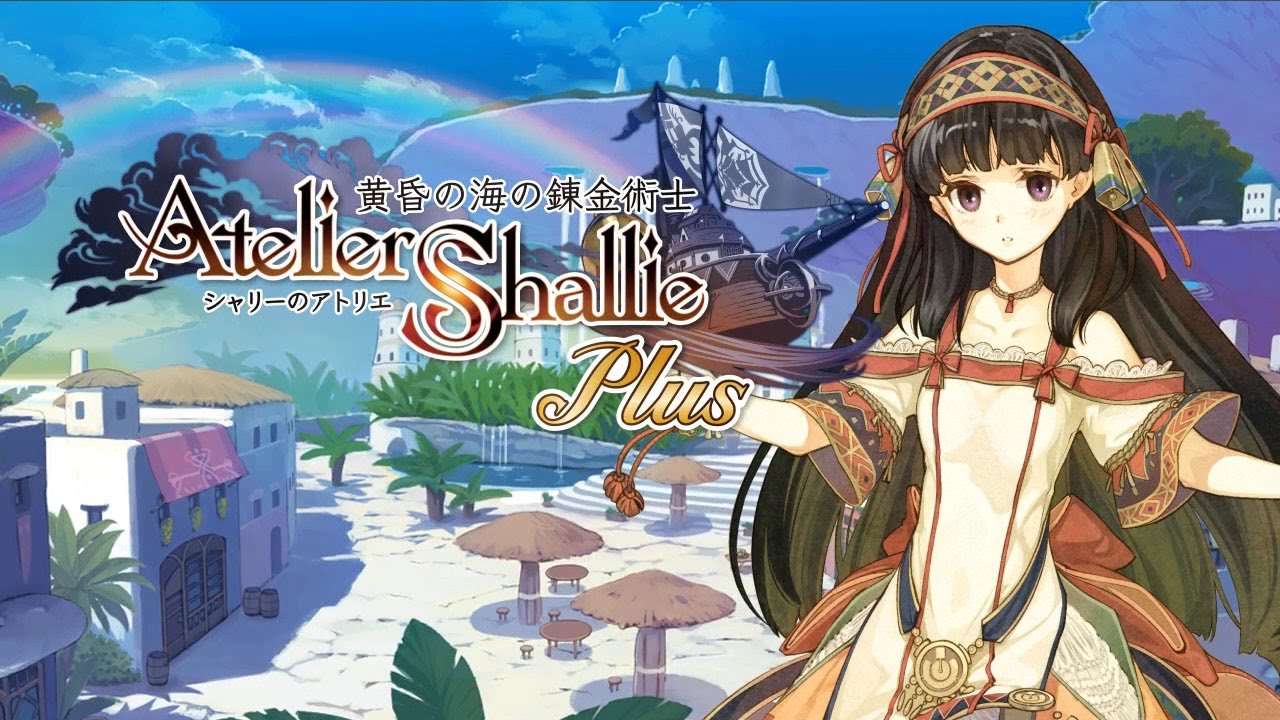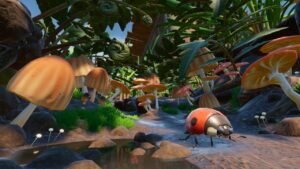The Atelier series has been a consistently fun alternative to the bulk of JRPGs that come west. Their generally relaxed paces, easygoing plots, and novel mechanics make for role-playing experiences that feel both fresh and fun to play, while providing a surprising amount of depth for people who want something to sink their teeth into. It’s a series that a casual RPG player can pick up and easily grasp, while simultaneously being one genre veterans can find merit to. Atelier Shallie Plus: Alchemists of the Dusk Sea continues this tradition, making for a charming, accessible title only held back by some unfortunate technical issues.
Atelier Shallie Plus: Alchemists of the Dusk Sea follows Shallistera and Shallotte, two young alchemists who happen to be nicknamed Shallie. The two Shallies, however, are radically different characters. Shallistera is a woman from a remote village that has run out of water, while Shallotte is from a bustling oasis city. One is on a clear mission, the other is trying to figure out what she wants to do with her life One is reserved and quiet, the other is brash and loud. The young women’s stories unfold independently and concurrently, with players able to choose between the two at the outset of their adventure, but their paths do overlap at several points throughout the narrative.
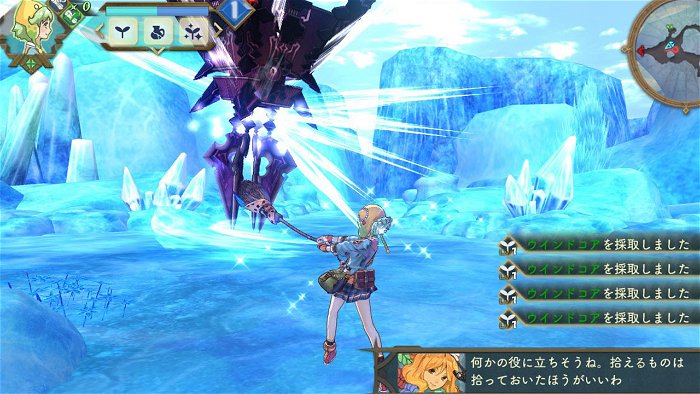
What stands out about the two narratives of Shallie, to me, is what stands out about the Atelier series as a whole – the lack of bombast and spectacle typically associated with JRPGs. People aren’t getting murdered by being thrown into televisions, and the world isn’t getting torn to shreds by a monstrous form of the protagonist’s father. The focus of the game is on the day-to-day tasks that people have to accomplish to stay alive. Yes, Shallistera’s mission is to save her village’s water supply, and bits of canon unveil more about the series’ catastrophic “Dusk” event. Yet the overall tone of the game feels relaxed, soothing even. An emphasis is placed on the characters themselves and the growth they experience, the small victories they encounter in their daily lives. Because the characters are given so much care and attention, any sort of hardship they encounter feels tangible and has impact. These are not just tropes acting as pawns in a larger narrative – these are nuanced, interesting characters that are easy to get attached to as you play.
The act of playing is also easy to get attached to, thanks to gameplay that works on two entirely different levels. On one level, it’s a turn-based RPG through and through – players travel around, hit an enemy, get in a battle, gain experience. On another level, though, the battles often feel ancillary to the main experience. Most of Shallie is spent gathering resources for crafting, using those crafted resources to craft other resources, then crafting even more things. Everything in this game, from healing items to better defense to stronger weapons, is pretty much attained through crafting, aside from occasional treasure chest drops.
As somebody who usually retches a little every time he has to craft something in a video game, I found this series’ approach to resource gathering and management still somehow never pushed me away. Shallieb is the antithesis to every AAA game that shoehorns crafting in and suffers for it. In this game, your ability to stash resources is unlimited. Resources are divided into different areas, which you can find on the world map and go to in less than thirty seconds. Collecting crafting materials is as easy as pressing a button. The acting of crafting is easy to grasp and done through stylish menus, and even gives players options to buff separate components of a recipe to make better items or gear. It’s a deep system, if you break down every mechanic, but it never feels like players are being bogged down by tedium as they do it. To me, that’s what makes the Atelier series a master of its craft – easing players into doing complicated things to the point where it feels natural and not overwhelming.
With two separate stories, loads of missions, and hundreds of things to craft, Atelier Shallie has hours upon hours of content, but can also be rushed through thanks to the Life Task system. Aside from bits that drive the story forward, the game is progressed by accomplishing enough personal goals for either Shallie. These are achieved by looking at a meter shaped like either girl’s head, then filling up that meter based on doing the tasks that are on their mind. It’s a novel system that makes progressing a cinch, while still leaving room for accomplishing ancillary tasks if players are so inclined. The best part, though, is that Life Goals are determined by the player’s actions in the game. If a player does a ton of fighting, they’ll get a lot of combat-oriented Life Goals; if they gather a ton of resources, or just like exploring, they’ll get Life Goals based around that. Of course, getting in fights so the characters can level up is a good idea, but the fact that the game adapts what it incentivizes to best suit the player is an ingenious system that more games could learn from.
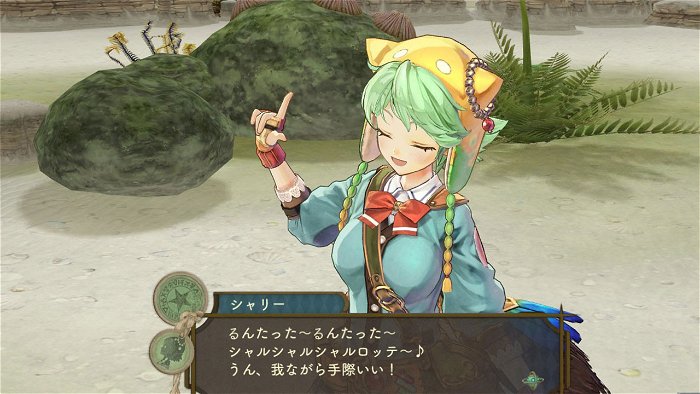
That said, this version of Atelier Shallie could learn from a lot of Vita games. I say this because, despite loving the overall game itself, I‘m forced to admit that this port is awful. The wonderful art direction is squandered by jagged visuals and environments that look like jagged smudges at times. Gameplay is hindered by jarring dips in framerate, to the point where some areas look like they’re going in stop motion. The difference between this and the PS3 release is like night and day, and gave me flashbacks to Gust’s atrocious PSP port of its other crafting franchise, Mana Khemia. While there is extra content in this version, I’d undoubtedly recommend picking up the original release over this one based on technical issues alone. Which is a shame, as the bite-sized missions and ability to play in short bursts feel tailor-made for a portable system.
But while there is a better version, there’s no denying that Atelier Shallie Plus: Alchemists of the Dusk Sea is a very good game. Its mechanics are addictive, its story endearing, its art direction arresting – it’s almost everything I love about JRPGs rolled into a charming, novel package. While I’d highly recommend picking up the PS3 version over this pretty middling port, the core game shines through to merit a recommendation no matter how you experience it.
